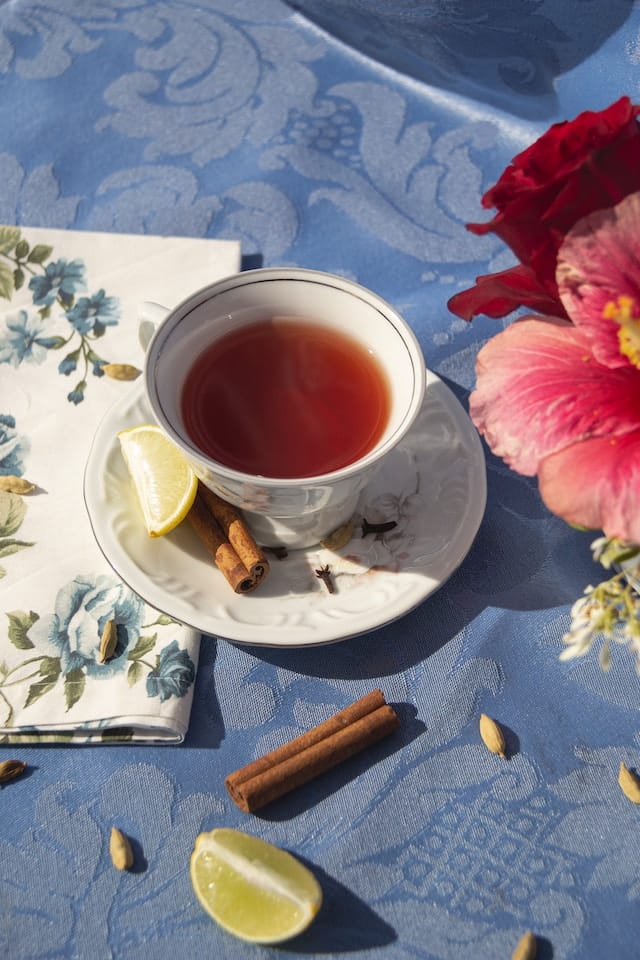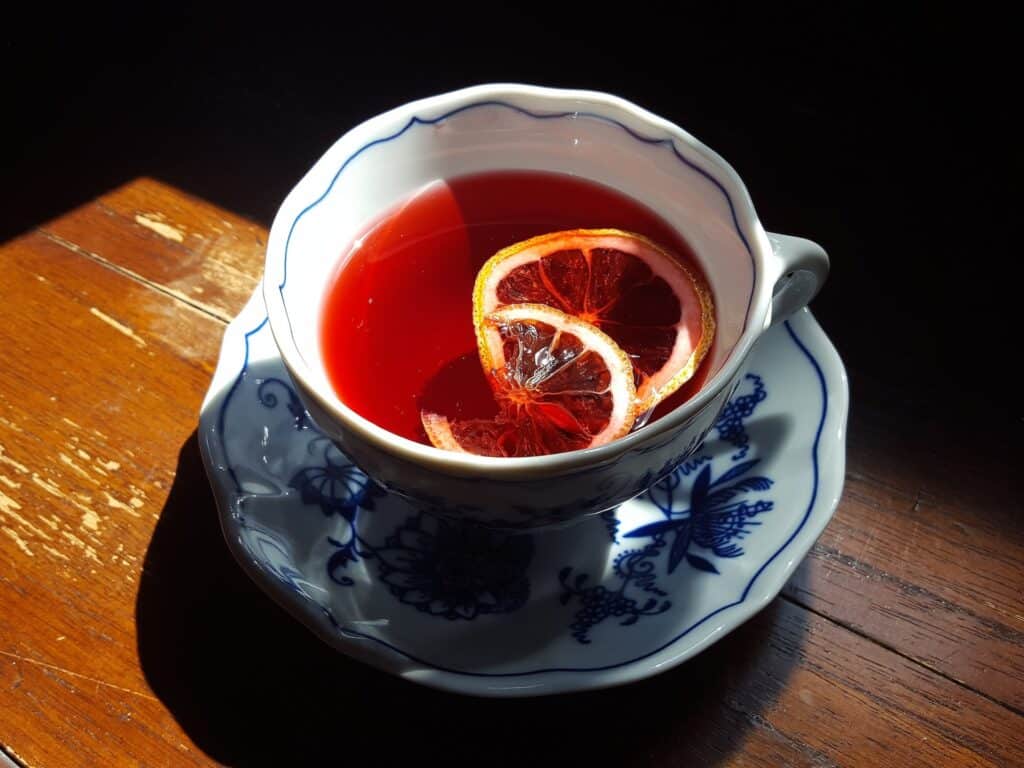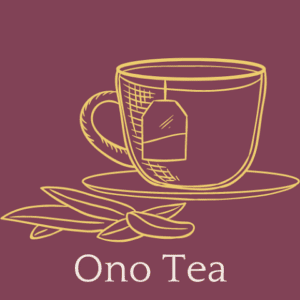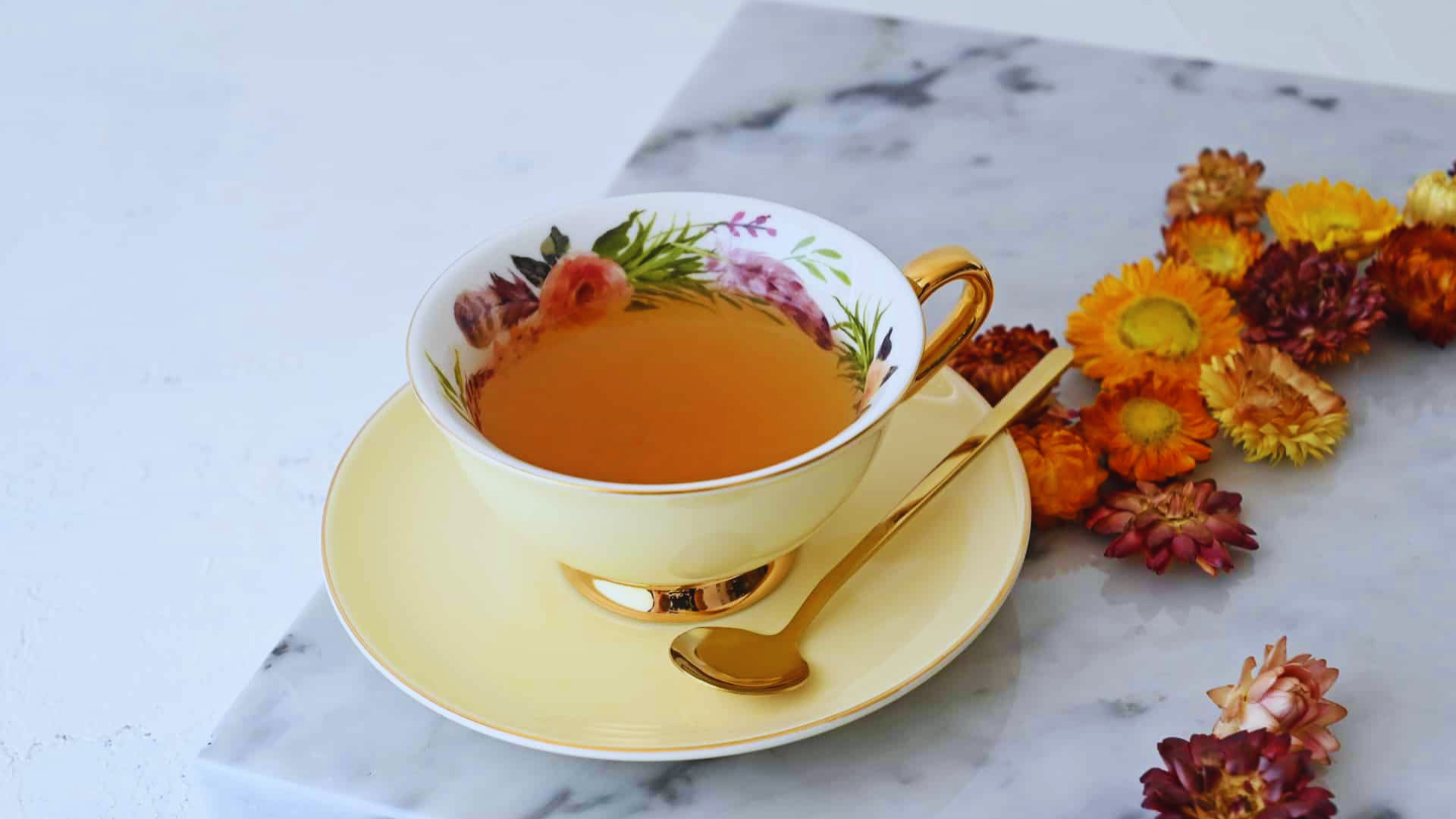If you are a fan of tea, you should already be aware of the endless number of varieties and blends that are available, including Orange Pekoe.
Orange Pekoe is the highest grade of black tea that predominantly comes from Sri Lanka and India. Its place of origin also dictates its full-bodied flavor: fruity, spicy, malty, or chocolaty.
Want to learn more about Orange Pekoe tea? Keep scrolling!
What Is Orange Pekoe Tea?
Orange Pekoe refers to the classification of tea that contains young, new-flush tea leaves from the Camellia sinensis tea plant.
This tea does not have flavors of citrus fruit or any other fruits; the name comes from its appearance (which resembles lightly bruised orange peels) and quality. Orange Pekoe teas may contain small, mature leaves mixed in with more tender leaves.
Pekoe tea is the highest grade of tea leaf picked with the bud from a plant, usually in Indian black teas or Ceylon tea. Because young leaves are more delicate, the growers must pick them by hand to prevent bruising.
People in North America often use the term “Orange Pekoe” to refer to a variety of black teas. The word “pekoe” means “white hair” in Chinese, referencing the young buds that growers pick for making OP loose-leaf black tea.

Why Is Tea Famous as Orange Pekoe?
The Orange-Nassau were the Dutch royal family during the 18th century. They found the tea industry very fascinating. So Holland imported more tea than any other country.
The highest-quality Pekoe teas were probably saved for the royal family. In theory, Dutch merchants were the first to label tea as “Orange Pekoe,” adding their royal family title to the tea labels.
So, to add their own stamp to the tea and to take advantage of the royal family’s popularity, they named it “The House of Orange.”
Grading System
The grade refers to the quality of a tea and is generally determined at the final sorting stage.
Being graded as an Orange Pekoe indicates that the tea contains whole leaves instead of dust or fragments of leaf left over after processing of higher grades.
Orange Pekoe grade is the highest grade of black tea, and people often call it OP. Sometimes, graders use “OP” as an umbrella term to represent other higher grades of black tea.
- OP: Orange Pekoe
- FOP: Flowery Orange Pekoe
- GFOP: Golden Flowery Orange Pekoe
- TGFOP: Tippy Golden Flowery Orange Pekoe
- FTGFOP: Finest Tippy Golden Flowery Orange Pekoe
We’ve included an overview of the most common types.
Flowery Orange Pekoe
Flowery Orange Pekoe is a result of the tip of the bud and the two youngest and tenderest leaves of each shoot. The rich, fragrant, and bright hue of this tea is achieved through working with hand-picked leaves.
Orange Pekoe
The Orange Pekoe (OP) grade is the most popular among black teas. This type of tea shows little or no tip, which results in a full leaf that may not be a full leaf; thus, we call it broken orange pekoe (BOP).
How to Prepare Orange Pekoe Tea
The following steps will get you a great cup of Orange Pekoe Black tea. If you notice that the taste of your OP is less than desirable, think about changing the ratio of water to tea leaves in a way that allows the flavor to develop. Note that you can use either Orange Pekoe tea bags or loose leaf tea.
- Use pure, fresh, and cold-filtered water to make Orange Pekoe tea.
- To use a store-bought tea bag, boil water, put a tea bag in water, and pour in hot water.
- On using loose leaf Orange Pekoe tea, use 2 to 3 grams of tea to make a cup of 6 oz.
- For a mild taster, steep for about 3 to 5 minutes. Steep for up to 10 minutes for a stronger cup or add more leaves.
- Strain the leaves or remove the tea bag from your mug and sip in the freshness of Orange Pekoe black tea.
What Does Orange Pekoe Tea Taste Like?
Imagine a sweet, warm orange infused with cinnamon and clove. That’s the taste of Orange Pekoe teas, but it greatly depends on the origin.
However, Orange Pekoe generally has a smooth and mildly sweet flavor. Therefore, it is preferable in the morning. Tea drinkers describe this premium orange pekoe as aromatic, delicious, and bright.
Orange Pekoe tea from India has a malty aroma. So, it might come across as slightly spicy and smoky, but this just ensures that it has a rich taste. The Sri Lankan Orange Pekoe tea may be fruitier, lighter, and sweeter, while Chinese Yunnan teas are famous for their chocolate notes.

Benefits of Orange Pekoe
Full of health benefits, orange pekoe black tea originates from the highest-quality tea leaves. The loose-leaf blend is rich in antioxidants, which can help reduce free radicals in the body.
This full-bodied black tea is made from young, high-quality leaves. It has a moderate amount of caffeine and l-theanine, which is an amino acid that can help reduce stress and anxiety.
It also boasts cold-fighting, anti-inflammatory, and digestive health-boosting properties.
Caffeine in Orange Pekoe Tea
The Camellia Sinensis plant contains caffeine. Therefore, all teas made from the leaves of this plant have a level of caffeine in them. How the leaves are treated after harvesting greatly determines the levels of caffeine present.
Orange Pekoe tea is made up of full leaf buds and young leaves ranging in color from bright green to light brown, so it has low levels of caffeine in it compared to coffee.
And like most other types of black tea, this one has around 45 mg of caffeine per 8-oz cup.
Conclusion
Orange Pekoe is a grading system that graders use for Indian or Ceylon teas. This aromatic tea is handcrafted at a premium elevation to ensure the best flavor. In short, the complexity of flavors and aromas in each cup of your Orange Pekoe blend will definitely amaze and refreshen you.

